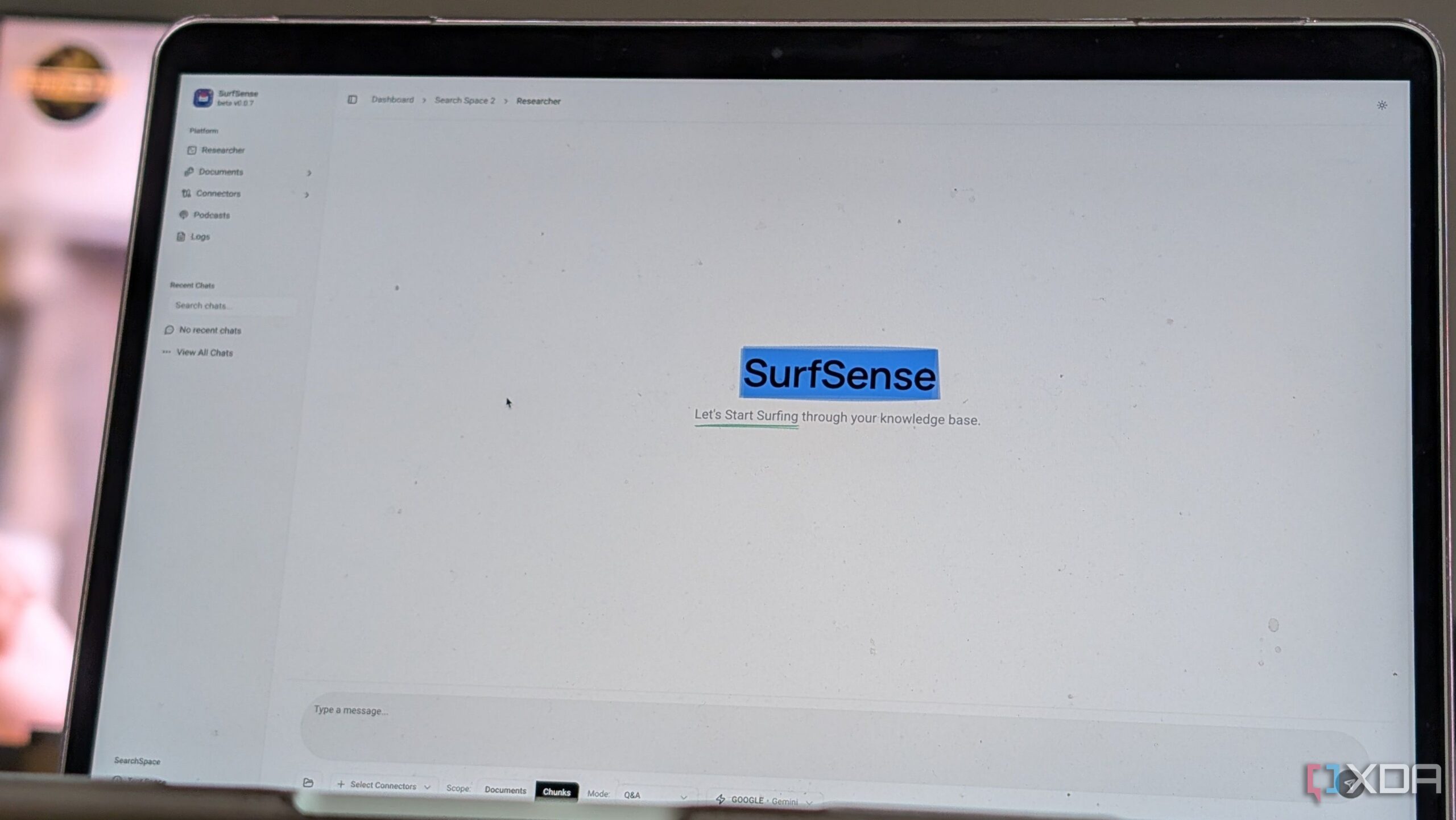URGENT UPDATE: A powerful new AI research tool, SurfSense, has just launched, providing an innovative alternative to the well-known NotebookLM. This free and open-source solution offers users unparalleled control over their data and flexibility in managing various sources.
SurfSense is designed to be a self-hosted research assistant, enabling integrations with platforms like Slack, Notion, GitHub, Discord, and even YouTube. This wide range of compatibility allows users to create a comprehensive and searchable knowledge base, streamlining the research process significantly.
What sets SurfSense apart is its advanced search capability. Utilizing Retrieval-Augmented Generation (RAG), the app focuses on context and relevance rather than just keyword matches. When users pose questions, SurfSense delivers insights that are more meaningful and tailored to their needs.
For those looking for efficiency, SurfSense also offers a browser extension, making it easy to save dynamic pages directly to the knowledge base, even those behind login screens. This feature is incredibly beneficial for students and researchers curating important data and academic papers.
Moreover, SurfSense supports over 150 large language models (LLMs), allowing users to customize their AI experience. This flexibility means that researchers can choose specific models for various tasks, enhancing productivity and tailoring the tool to their specific needs. Whether for creative projects or technical coding research, SurfSense provides an adaptable solution that NotebookLM lacks.
The launch has sparked interest among developers and open-source enthusiasts. SurfSense promises a more hands-on approach, allowing users to pull in diverse resources into one centralized project. However, potential users should be aware that setting up SurfSense requires more technical knowledge compared to the ease of use offered by NotebookLM. Initial installation may involve dealing with dependencies and configuring API keys, which could deter some users.
Despite these challenges, those who invest the time will benefit from superior performance and control over their data. Users have reported that SurfSense runs smoothly, with comprehensive documentation and an active Discord community for support.
Nevertheless, some limitations exist. Users have noted potential slowdowns when handling large datasets, which is to be expected given that SurfSense operates on personal hardware rather than cloud servers. While occasional multiple searches may be necessary, the tool generally performs well for everyday research tasks.
Overall, SurfSense emerges as a compelling alternative to NotebookLM. It offers greater autonomy in managing data and integrates multiple sources into one platform, making it a suitable choice for researchers, developers, and tech-savvy individuals seeking enhanced control. The launch is a significant development in the AI research tool landscape, and users are encouraged to explore SurfSense’s capabilities immediately.
Stay tuned for more updates on this exciting new tool and its impact on the research community.
